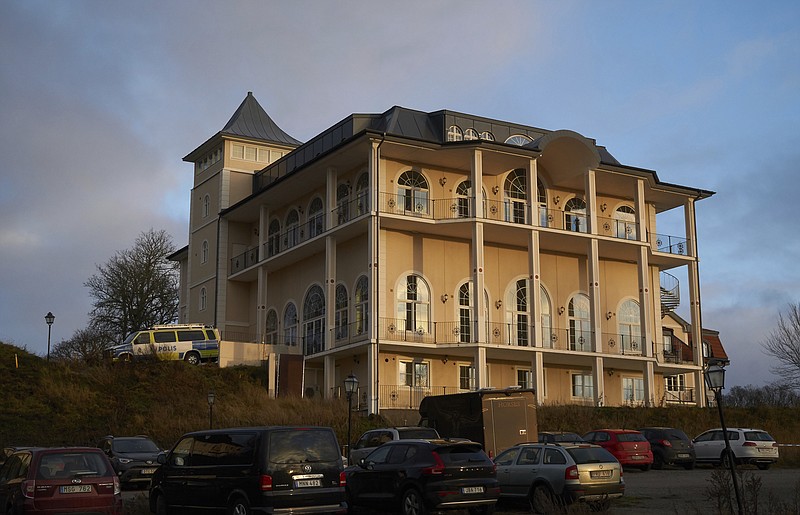RIMBO, Sweden (AP) — Yemen’s warring sides agreed to a broad prisoner swap Thursday, sitting down in the same room together for the first time in years at U.N.-sponsored peace talks in Sweden aimed at halting a catastrophic war that has brought the country to the brink of famine.
Hopes were high that the talks wouldn’t deteriorate into further violence as in the past, and the prisoner exchange would be an important first step toward building confidence between highly distrustful adversaries.
The 3-year-old conflict pits the internationally recognized government, which is backed by a Saudi-led coalition, against Shiite rebels known as Houthis, who took the capital of Sanaa in 2014. The Saudis intervened the following year.
U.N. envoy Martin Griffiths said the two sides have signaled they are serious about de-escalating the fighting through calls they’ve made in recent weeks, and urged them to work to further reduce the violence in the Arab world’s poorest nation, scene of massive civilian suffering.
“I’m also pleased to announce the signing of an agreement on the exchange of prisoners, detainees, the missing, the forcibly detained and individuals placed under house arrest,” Griffiths said from the venue. “It will allow thousands of families to be reunited, and it is product of very effective, active work from both delegations.”
The international Red Cross said it would oversee the prisoner exchange, which is expected to take weeks.
The talks in the Swedish town of Rimbo, north of Stockholm, aim to set up “a framework for negotiations” on a future peace agreement, Griffiths said, calling the coming days a milestone nonetheless and urging the parties “to work in good faith … to deliver a message of peace.”
The fighting in Yemen has generated the world’s worst humanitarian crisis and claimed at least 10,000 lives, with experts estimating a much higher toll.
The Saudi-led group has conducted thousands of airstrikes, hitting schools, hospitals and wedding parties in what critics call reckless bombardment. The Houthis have, for their part, fired long-range missiles into Saudi Arabia and targeted vessels in the Red Sea. Both sides stand accused of war crimes.
U.N. officials, however, have sought to downplay expectations from the talks, saying they don’t foresee rapid progress toward a political settlement but hope for at least minor steps that would help to address Yemen’s worsening humanitarian crisis and prepare a framework for further negotiations.
U.N. Secretary-General Antonio Guterres welcomed the talks and urged the parties to make progress on the agenda outlined by Griffiths, U.N. spokesman Stephane Dujarric said in New York.
The U.N. chief appealed to the warring parties “to continue the de-escalation of (the key port city of) Hodeida and explore other measures to mitigate the life-threatening economic and humanitarian situation,” Dujarric said.
Some Yemeni voices on both sides fired off last-minute demands, sniping commentary and finger-pointing, while combat continued on the ground in some areas.
Fighting raged in the central city of Taiz, long a contested battleground, where residents were hopeful yet highly skeptical they had much to look forward to amid the poverty.
“We here in Taiz have been three years without salaries, and still we are here in the street, looking for an income,” local Faisal al-Asali said from a street cafe.

